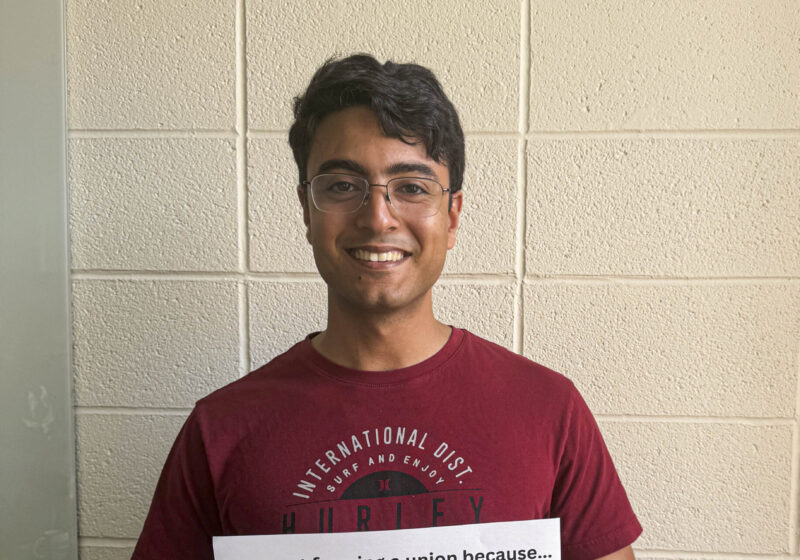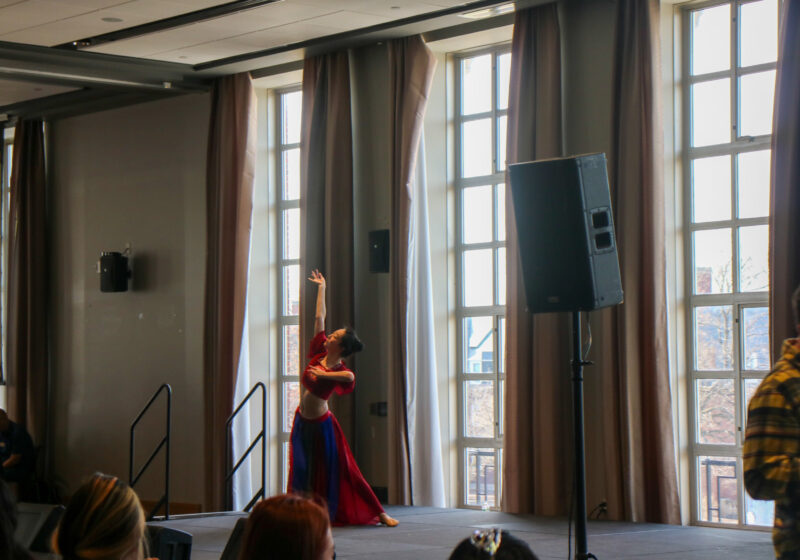In February of this year, I developed a toothache. While this would typically resolve itself through a quick visit to the dentist, I found myself in a distressing situation. I had recently visited Egypt, my home country, which had depleted my savings account. Without savings nor dental insurance, I had no idea how I was going to address the growing pain in my mouth. As I waited, the toothache worsened, and the situation became dire. In a last ditch effort, I reached out to an Egyptian dentist I knew in the Rochester area. Thanks to her kindness and goodwill, she quickly fit me into her schedule and addressed my toothache at no cost.
This situation was only one instance of many where my status as an international Ph.D. student at the University left me in a vulnerable position. This is why I joined the Organizing Committee to build a graduate worker union at UR, and also sought leadership of the International Students and Scholars Association, where I serve as President. Through these roles, I have learned that issues such as these are widespread within the international student community, impacting us continuously from the moment we arrive in the U.S. onward.
For instance, the majority of graduate workers here at UR do not make a living wage. Not only does this lead to significant day-to-day hardship, but for international students, low wages make it very hard to travel home and visit family and friends. Even if we had the financial freedom to travel home, our contracts do not guarantee us enough time off to make the trip.
There is a perpetual lack of support for international students at the University. Since we do not receive a W-2, many of us cannot receive a Social Security Number, thus restricting our ability to rent an apartment, secure a credit card, or get a driver’s license. We also do not receive sufficient assistance and support for complex tax filing requirements or reimbursement for immigration fees.
We need a union. With a union, Ph.D.s at UR would have the power to collectively fight for better conditions. At other universities, unionized grad workers were able to negotiate contracts with administration that provided international students increased support and protections. For example, at Syracuse University, unionized grads were able to achieve in their contract fully subsidized access to tax preparation programs, up to five days paid leave for immigration proceedings, reimbursement of SEVIS fees, and the creation of an International Graduate Assistants Healthcare Dependent Fund. At the University of Michigan, Washington, and Massachusetts-Amherst, grads were able to achieve increased protections against bullying and harassment of international students. At Georgetown, the graduate workers achieved a guarantee that the university would rehire international students who experience an interruption in their job authorization or visa status.
The benefits of unionization are undeniable. We would get a seat at the table to negotiate for the things most important to us. But it is also clear that unionization comes with questions, and some of us international students may have concerns. I would like to address some of those questions, and reassure you that your support and participation in the union effort is protected.
One common question that I hear is whether or not international graduate workers on a student visa are allowed to unionize. According to federal law, international graduate students have the same legal rights and protections as domestic students regarding unionization. Under the National Labor Relations Act (NLRA), unionization is classified as a protected activity, and it is illegal for our employer to retaliate against us. Furthermore, the administration has instructed faculty not to surveille, interrogate, or make threats to graduate students in regard to our unionization effort.
Another concern I have heard is whether taxes will change when we unionize. International students will continue to pay their taxes the same way they currently do after unionization, since it won’t affect our visa or residency status. And, for the many of us who are frustrated by the way we currently have to pay taxes, unionizing will give us an avenue to bargain to change that.
Lastly, I would like to answer a few questions regarding dues. Union dues are 1.9% of our annual salaries, which goes toward growing the labor movement and supporting workers. For example, facilities and food staff workers on campus are already unionized and part of their dues go toward supporting our campaign! It is important to note that we will not begin paying dues until after we negotiate and vote on a contract. I, for one, will not vote for a contract unless the stipend increase significantly outweighs dues.
International students are 56% of the graduate workers on this campus. Our voice and support are critical to building this union and we need to be involved to fight for the changes we would like to see. I encourage you to support the unionization effort by signing a union card today, and sharing this information with your coworkers.






